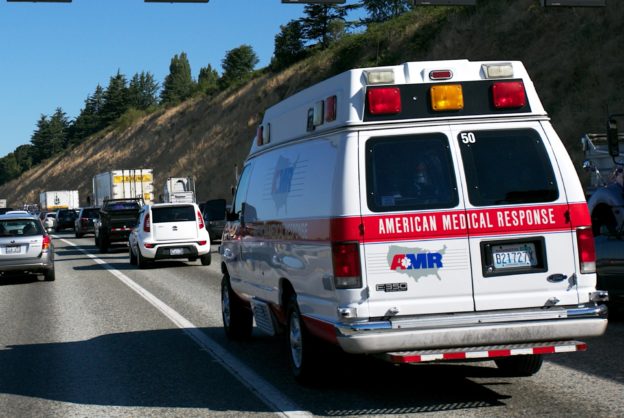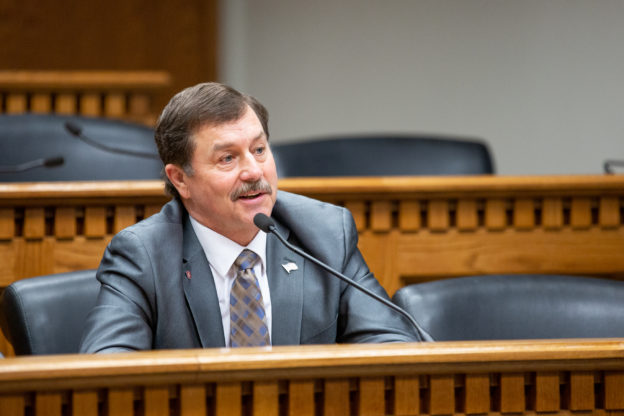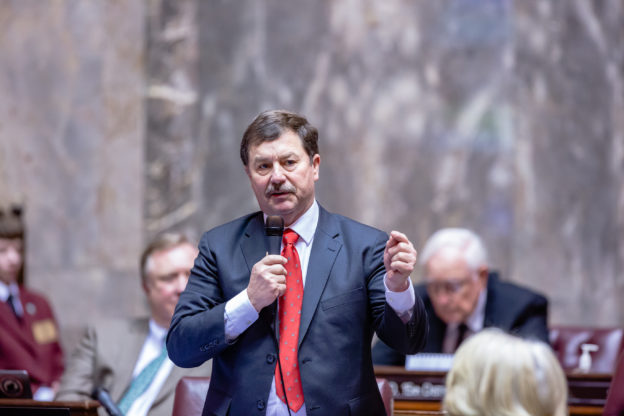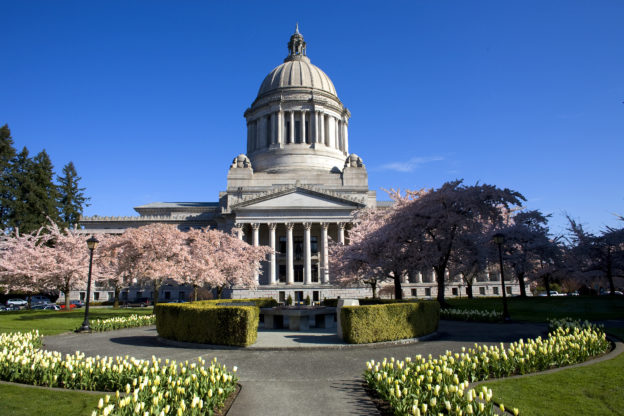A Democrat-sponsored “carbon cap and tax” bill passed 25-24 tonight by the Senate would punish Washington citizens and small businesses while letting big corporations off the hook, argues 9th District Sen. Mark Schoesler.
Senate Bill 5126 now goes to the House of Representatives for further consideration. The 2021 legislative session is scheduled to end April 25.
“This is another bill that would punish people and companies by sharply raising gas and diesel prices, without a guarantee that our roads and highways will benefit, and no proof of even helping the climate,” said Schoesler, R-Ritzville. “The bill is called the Climate Commitment Act, but the only thing it will commit Washingtonians to is handing over more of their hard-earned money for an environmental plan that won’t work.”
Schoesler said many residents in his legislative district would not qualify for any of the exemptions from the proposed tax.
“This cap-and-tax bill offers several types of exemptions for foreign-based oil corporations like BP and Royal Dutch Shell, but it would punish rural communities, middle-class families and individuals, and small businesses. This is a very unfair, inconsiderate and inconsistent bill to people in my district and other rural districts in our state,” said Schoesler. “It amounts to a very regressive tax that will disproportionately affect those least able to afford it. If the Democrats really cared about equity, they would not pass this bill.”
Schoesler, a wheat farmer, said the “cap and tax” bill also would have a negative impact on Washington agriculture and would hurt the state’s economic competitiveness.
“Agriculture in our state needs to use a large amount of fuel to produce crops and move those crops to market or to ports to be exported around the world,” said Schoesler. “Farmers and growers are price takers, not price setters, which means they’ll be hurt by higher fuel prices. This bill will be very bad for ag, no question about it. The bill also will make our state less attractive for many large companies to relocate or stay in our state, which means fewer jobs will be created here and jobs will instead move to more business-friendly states elsewhere.”
Under this bill, starting in 2023, businesses producing more than 25,000 metric tons of carbon per year would be required to purchase “allowances” for emissions at auctions arranged by the Department of Ecology. End-user consumption would be included in emissions calculations, meaning refiners would be held responsible for tailpipe emissions. Money from these auctions would go to the state, and would be split between CO2 reduction programs and a transportation-related account called “Forward Flexible.” The price of allowances would grow over time until the state meets arbitrary emissions targets – 45 percent below 1990 levels by 2030 and “net zero” emissions by 2050. The program’s details would be handled by the Department of Ecology. The program is expected to raise about $500 million annually.
“If this bill becomes law, it will raise another $500 million in taxes on hard-working people and businesses just to have a ‘permit to emit,’” said Schoesler. “We have so many people around our state who are trying to get back on their feet after suffering through the COVID pandemic, but this terrible bill would just take more money out of their wallets, all for some far-fetched goal that likely will never be realized.”
Schoesler said a Washington Research Council study of SB 5126 shows it could force gasoline prices to rise by 18 cents a gallon by 2023 and by 30 cents by 2030, with diesel prices increasing 34 cents per gallon by 2030.
“Gas stations in Spokane, Pullman, Clarkston and other border towns will be really hurt by this proposal because drivers will be more likely to fill up in Idaho or Oregon. And the tax revenue raised by this bill would not be subject to the state’s 18th Amendment, which requires gas-tax money to be spent for transportation purposes, so the money raised by this proposal could be spent for any purpose. There’s no assurance of any benefit to our roads and highways.”
Schoesler said the bill also would cause higher energy prices for consumers and businesses alike.
“If this bill becomes law, people likely will see an increase in energy prices if they use natural gas or propane, even electricity,” added Schoesler. “There are many households throughout our state that rely on natural gas or propane for heat or cooking. Many of these families are struggling financially and can’t afford an increase in their energy costs, yet the Senate Democrats voted to jack up these costs anyway. It’s shameful.”
Schoesler, a member of the Senate Ways and Means Committee, pointed out that when the panel held a public hearing on the bill last month, one opponent testified that a 2019 analysis found carbon emissions from oil and gas have actually increased since a cap-and-trade policy began in California.
“It’s scary that our state is trying to emulate something that is being done in California but isn’t working as intended. We should know better,” said Schoesler.
Before the Senate’s approval of Senate Bill 5126, Republicans offered nearly 40 floor amendments designed to improve the bill. Most were rejected by majority Democrats.
















